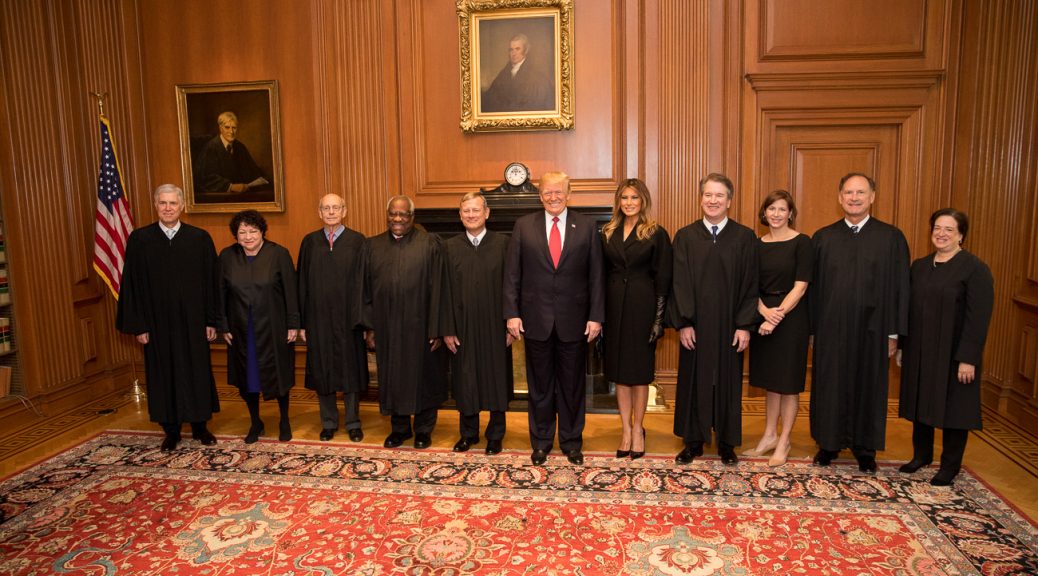
Supreme Court Allows Trump to Implement Income-Based Restrictions on Immigration
Post by Catherine Cargian.Colgate Class of 2022.
“Supreme Court Allows Trump to Implement Income-Based Restrictions on Immigration”, The Wall Street Journal, by Brent Kendall and Michelle Hackman, January 27th, 2020.
The Supreme Court recently passed a decision making it even more difficult for migrants to legally immigrate into the United States. A 5-to-4 ruling is permitting the Trump administration to deny immigrants legal residency for utilizing a federal welfare program. Immigrants can also be denied access even if they haven’t used the assistance, as long as an immigration officer assumes they will in the future. This decision will seriously impact the type of immigrants the U.S. is willing to take.
The White House created this policy in order to help the American taxpayer not “waste” their dollars on welfare for immigrants. However, many illegal and some legal immigrants were already not taking advantage of American public assistance. Many immigrants are not eligible for certain welfare programs or they choose not to take part in them out of pride or from cultural pressures to be able to provide on their own. While immigrants are often not taking part in public assistance programs, they often are paying taxes. Immigrants were already generally giving more back to the American economy than they were taking, even before Trump created this policy to restrict immigration (Frazee, 2018).
This new policy will cause fewer low-skilled workers to be able to enter the country legally. The test to see whether immigrants will be a cost to the government involves checking items such as the immigrant’s education level, English-speaking ability, health, and income level. People who have a low score in any of these categories will be less likely to gain access to America. Not surprisingly, most of the immigrants who would be restricted by this policy are low-skilled migrants who will have lower incomes. Not allowing these immigrants to enter the country to work will only put even more strain on the labor shortage in America. Lower-skilled immigrants are needed to fill jobs that companies need more workers for to keep U.S. production consistent and not lead to shutdowns or company moves. If immigrants are no longer available to work, the companies that rely on immigrant labor will suffer. Those companies will probably no longer be able to compete with foreign competition.
While this ruling was passed in order to save the U.S. money, when looked at more closely it may actually do just the opposite. Whatever the economic impacts may be, this decision will definitely change the types of immigrants that will be allowed legally into America in the future.
Works Cited
Craighead, Shealah. President Donald J. Trump and First Lady Melania Trump at the Supreme Court of the United States. 8 November 2018. The White House. Washington, D.C. <https://www.flickr.com/photos/whitehouse/44873406345/in/photostream/>
Frazee, Gretchen. “4 myths about how immigrants affect the U.S. economy.” PBS News Hour, 2 November 2018, www.pbs.org/newshour/economy/making-sense/4-myths-about-how-immigrants-affect-the-u-s-economy.